Celebrating Cinema's Finest Feminist Heroes (And Hollywood, If You're Listening: We Need More)
Hollywood, if you’re listening: 23% isn’t enough. We need more.
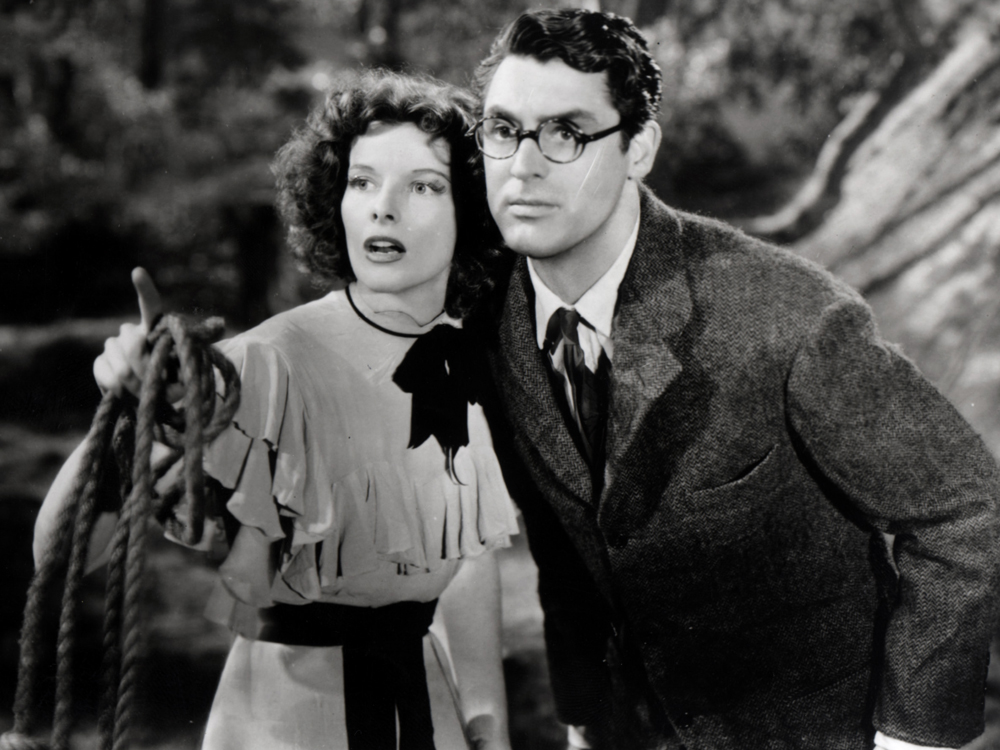
Celebrity news, beauty, fashion advice, and fascinating features, delivered straight to your inbox!
You are now subscribed
Your newsletter sign-up was successful
Hollywood, if you’re listening: 23% isn’t enough. We need more.
Words by Kat Lister
Earlier this year a young girl called Rowan wrote a letter to DC Comics about the lack of female superheroes. “Please do something about this,” she wrote. “Girls read comics too and they care.” It took an 11-year-old to say what so many of us had been thinking for so long.
The history of the feminist hero is a complicated one. While superhero comics have never been short of girl fans like Rowan, strong-willed women on screen – either with or without dazzling superhuman powers - have been distinctly lacking over the years. But wait: are things about to change?
As Katniss Everdeen stretches her bow and arrow for one last battle in The Hunger Games: Mockingjay – Part 2 and Star Wars: Episode VII The Force Awakens is gearing up to make a star out of female scavenger, Rey, Marvel has announced its new superohero this year. She’s a girl super genius who happens to be best friends with a 30-foot dinosaur. So, what does this say about feminist heroes in 2015? And how have past female characters influenced them?
Last year Facebook produced some interesting statistics: women account for 47% of the social media site’s 24 million self-identified comic fans. It’s a number that has barely budged since the 1940s when, according to Trina Robbins’ ‘From Girls to Grrrlz: A History of Women's Comics from Teens to Zines’, more girls read comics than boys.
Here's a similar newsflash for those male-dominated Hollywood studios and it’s a shocker (it’s not): according to the Motion Picture Association of America, in 2013 women made up 52% of total moviegoers and half of all tickets sold. Yet only 15% of these films star women. And how many of that 15% are reliant on a male co-star to relate her story to his? It doesn’t take a Bechdel Test expert to realise we still have a massive problem.
Celebrity news, beauty, fashion advice, and fascinating features, delivered straight to your inbox!

It wasn't always this way. On the big screen, autonomous heroines were a familiar sight in the 1930s and 1940s with actresses such as Katharine Hepburn, Joan Crawford and Bette Davis commanding the narrative with wit and independence. The screwball comedy genre is a great example of exactly this: a series of films starring strong female characters who dominate their male partner, subverting the traditional gender stereotypes of the day.
Over the decades, Hollywood's commitment to female leads has been sacrificed too many times to mention. According to Geena Davis’ Institute on Gender in media, in 2014 women occupied only 31% of speaking roles and a shocking 23% featured a female protagonist. When discussing cinematic heroes, how easy is it to talk about women when they portray only 10% of politicians, 7% of lawyers and 4% of sports figures on film?
As we approach 2016 with an all-women Ghostbusters cast and whispers of an all-female Ocean’s Eleven movie, it would be thrilling to think that maybe times are changing. Instead of holding our breath, we decided to take a look at just some of cinema’s feminist heroes over the years – heroes in command of their own story. Hollywood, if you’re listening: 23% isn’t enough. We need more.
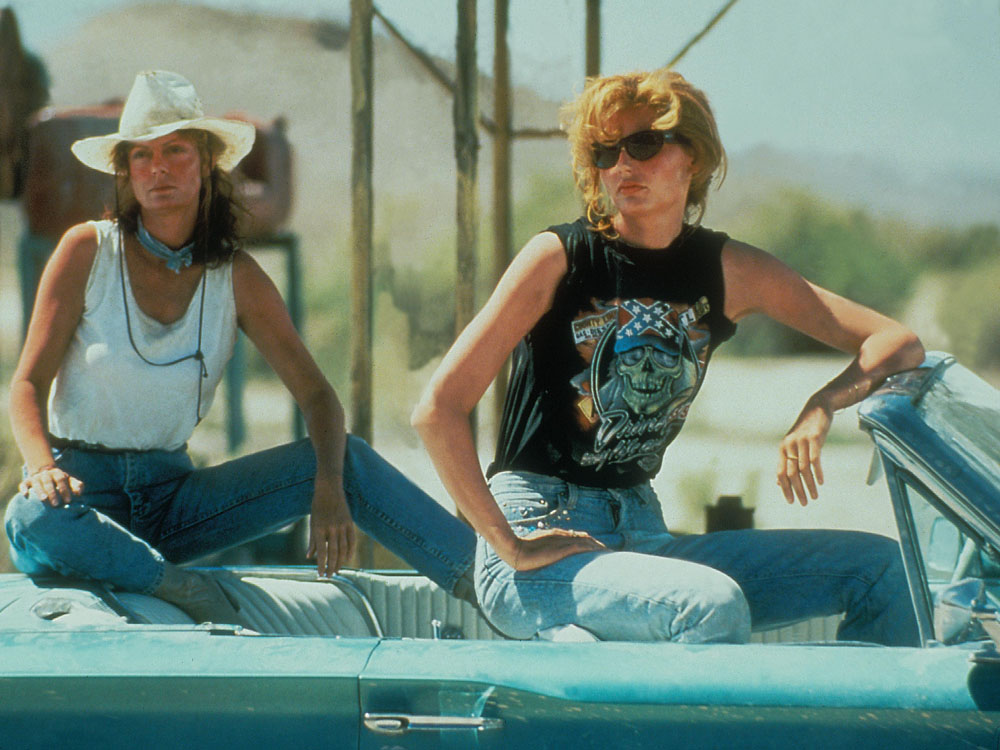
Thelma & Louise (Thelma & Louise, 1991)
Two women in two lead roles? We're feeling faint. It says a lot about the state of Hollywood that we're still talking about this feminist duo nearly 15 years after they accelerated off the Grand Canyon in a covertible. The fact is, a film featuring two such strong female characters is still a rare thing on the big screen. Thelma & Louise is an equal marker for women in film - many movies since have failed to live up to their legacy.
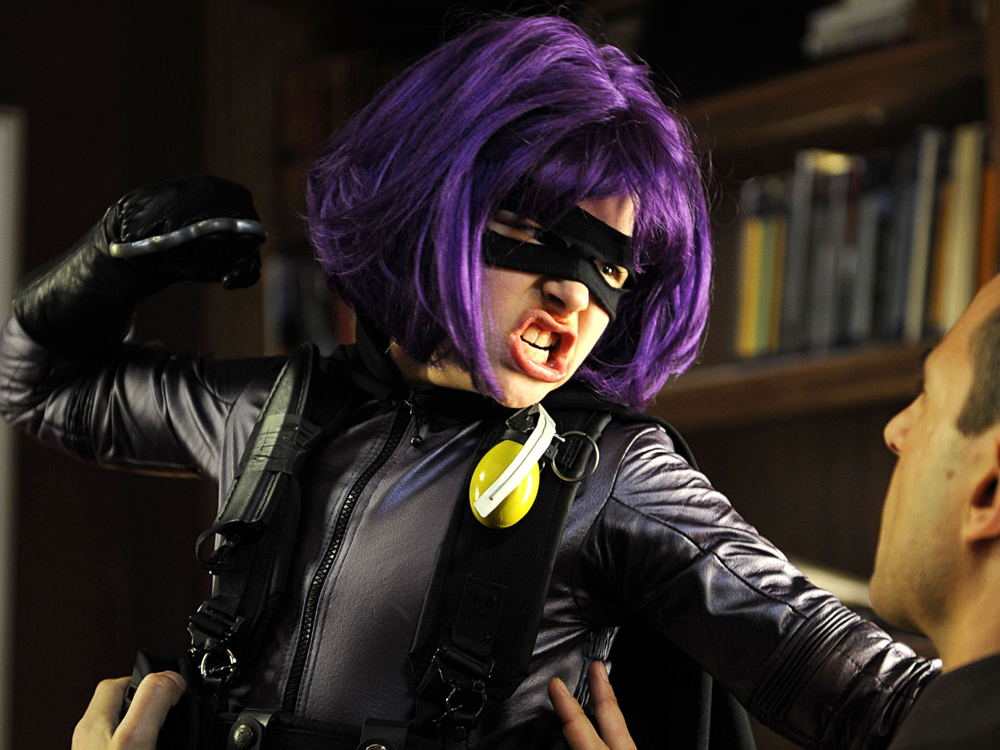
Hit-Girl (Kick-Ass, 2010)
Women can kick-ass with just as much kapow! as their male counterparts. Hit-Girl steals the movie as an 11-year-old assassin who likes to swear and go wild with a machete - and doesn't apologise for either. Asked by the Guardian if she is a "hardcore mini-feminist", screenwriter Jane Goldman replied: "Yeah... she's a feminist hero by token of the fact that she pays no attention to gender stereotypes. I think she also doesn't want special treatment because she's a girl."
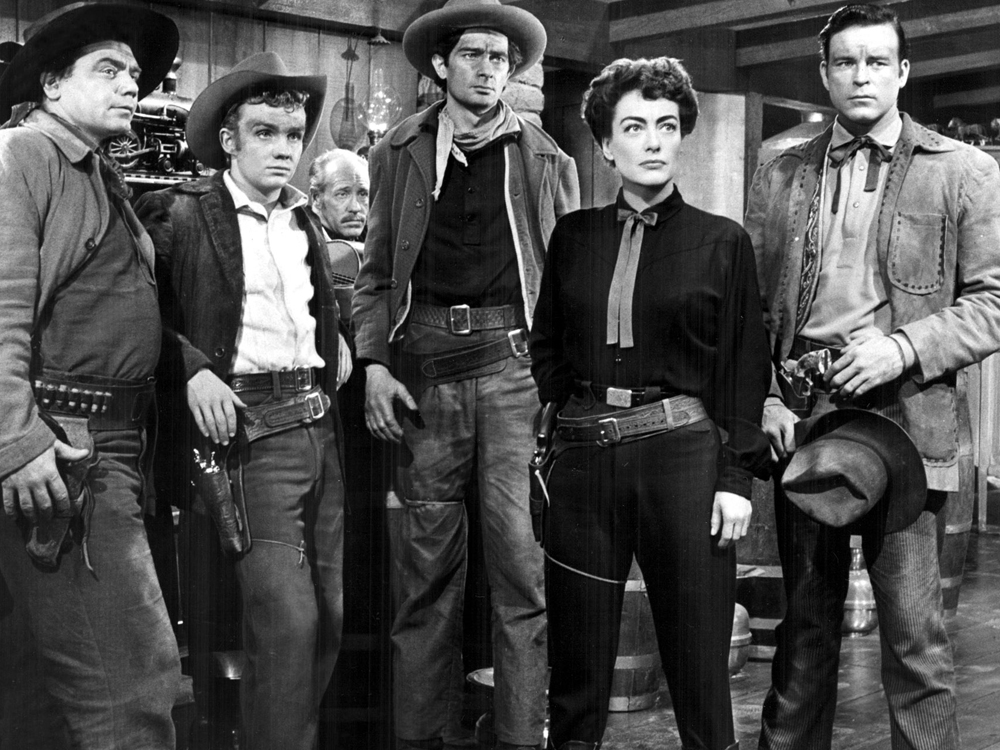
Vienna (Johnny Guitar, 1954)
Step back everyone, Joan Crawford's up next and she's a force to be reckoned with. Vienna is a no-nonsense, gun-slinging, straight-talking saloonkeeper. It's wildly ahead of its time for a 50s movie, with Crawford dominating the narrative with fearless guts and razorsharp dialogue. This isn't any ordinary western - this is a gender-stereotype smashing cowboy tale. It's now considered a feminist masterpiece.
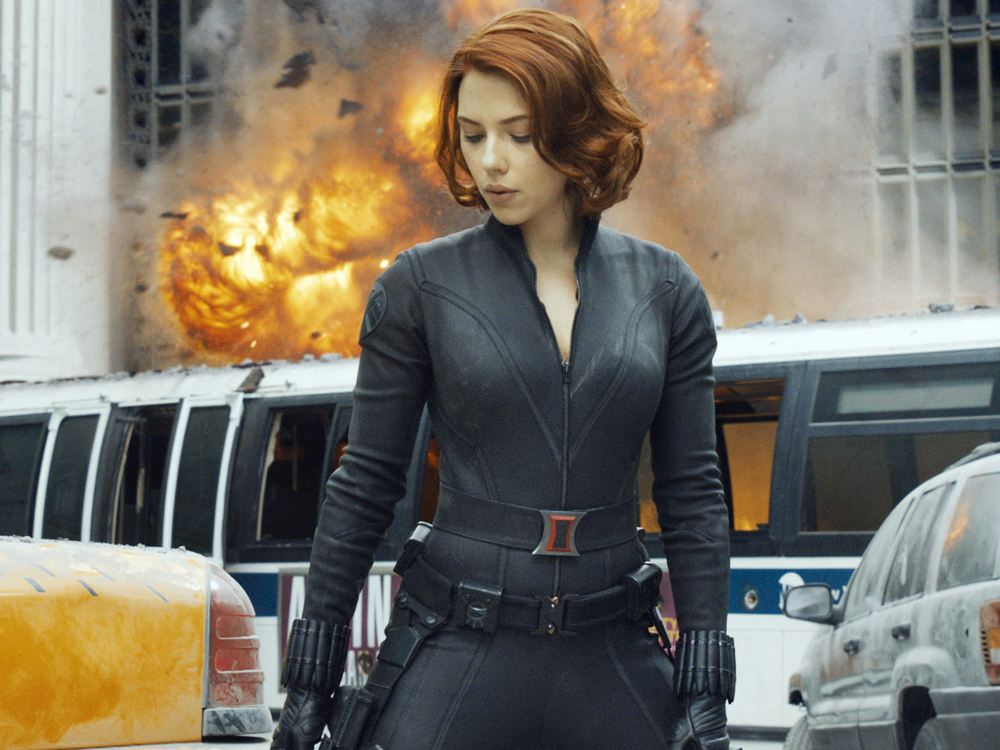
The Black Widow (Iron Man 2, 2010; Marvel's The Avengers, 2012; Captain America: The Winter Soldier, 2014; Avengers: Age of Ultron, 2015)
World class athlete, acrobat, martial artist and weapons specialist? Enhanced by biotechnology - making her immune from pretty much every microbe? Yeah, definitely our kind of superhero. Although The Black Widow made her first appearance on the cover of Iron Man in 1964, it's a role that Scarlett Johansson has made her own over the last five years. We can't get enough of her.
Marie I and Marie II (Daisies, 1966)
This Czechoslovakian avant-garde masterpiece is essentially a movie about two mischievous teenage girls who like to prank their way across town in gloriously psychedelic ways. And boy, are they an inspiration. Don't expect this story to make much linear sense - do expect Jitka Cerhová and Ivana Karbanová to capture true feminist spirit. Released two years before the Prague Spring, the film was banned by Czech authorities and director Chytilová was forbidden to work in her country again until 1975.
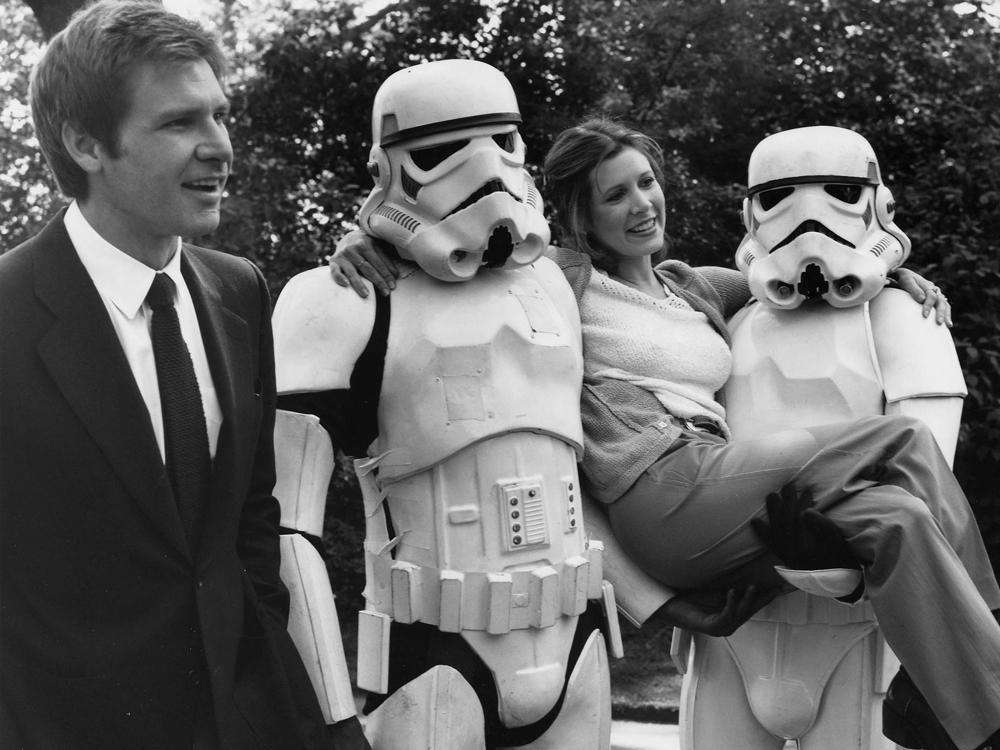
Princess Leia (Star Wars, 1977)
Who didn't want to be Princess Leia of Alderaan when they were growing up? Everytime we spot cinnamon swirls at the coffee shop we're still tempted. But, seriously, forget the metal bikini: that isn't what makes her our idol. What makes Leia a true feminist icon is her sarcastic one-liners and killer blaster rifle moves. Is there a woman who's cooler than Carrie Fisher? We think not.
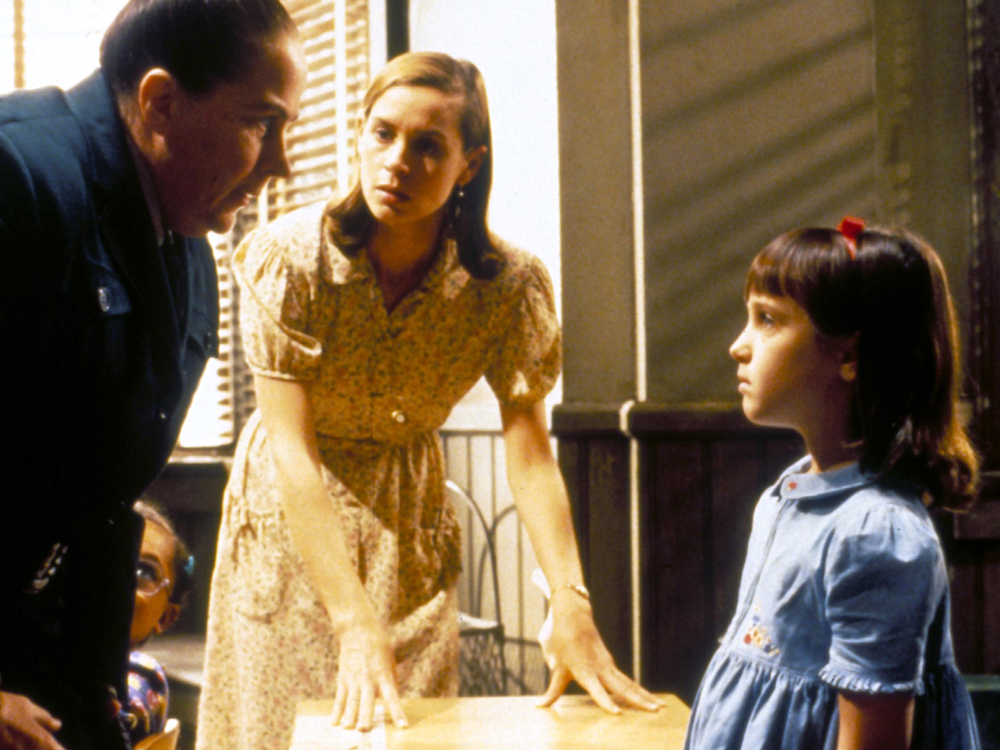
Matilda (Matilda, 1996)
There is something eternally inspiring about an empowered young girl, with a razor-sharp brain on a quest for justice.When Roald Dahl wrote about a neglected schoolgirl with a love of books and a penchant for telekinesis, he created a feminist hero in our hearts.
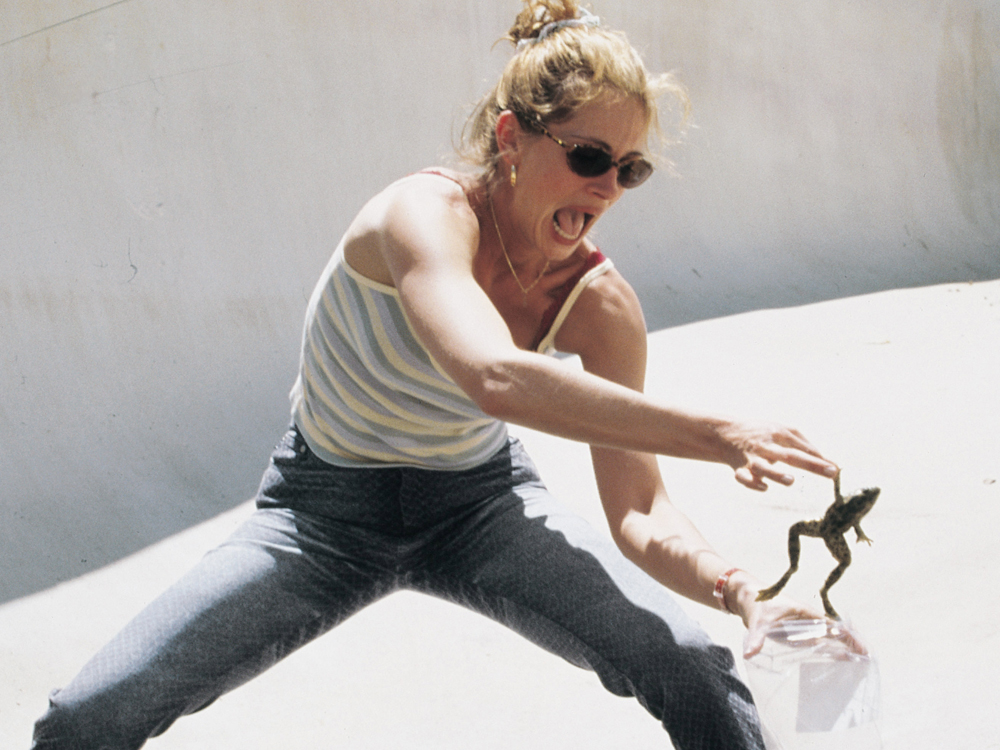
Erin Brockovich (Erin Brockovich, 2000)
Hey, look everyone! It's a film centred around an intelligent, career-driven woman and it has absolutely nothing to do with a man. And, wait: It's based on a true story, which means this incredible woman actually exists on real life too. In 2000 Julia Roberts took on the role of her life playing an unemployed, single mum of three who stumbles across a serious contamination cover-up and risks everything to build a case against them. If Erin isn't a hero, we don't know who is.
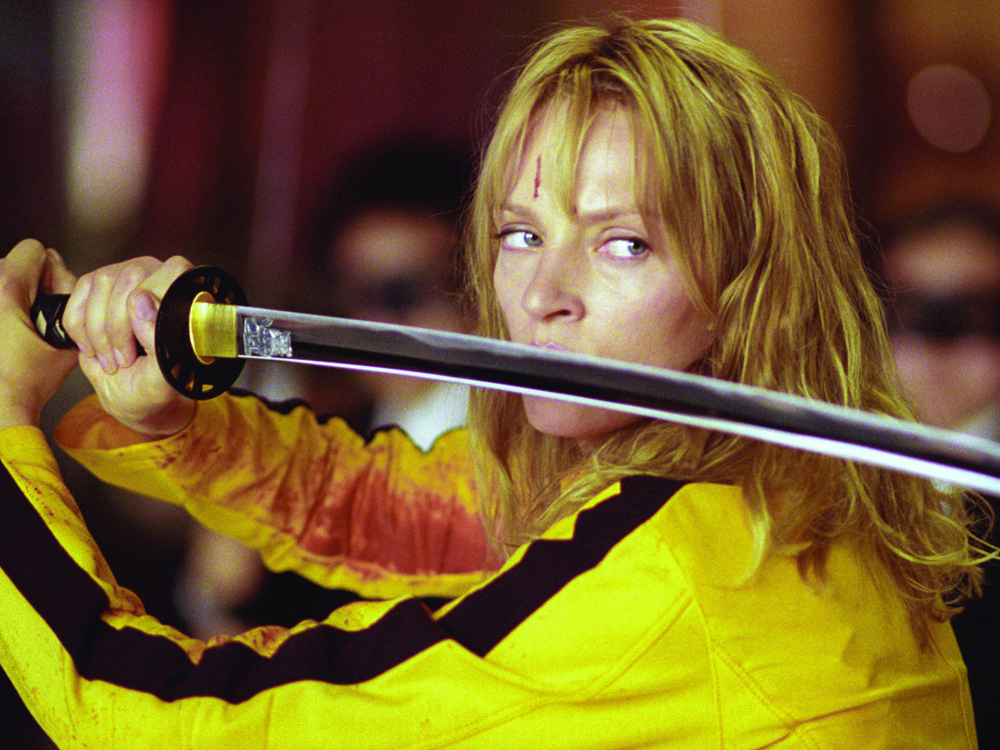
The Bride (Kill Bill, 2003)
Introducing Uma Thurman as The Bride: "the deadliest woman in the world". A samurai warrior seeking revenge on an assassination squad after they try to kill her and her unborn child. Need we say more? Didn't think so...
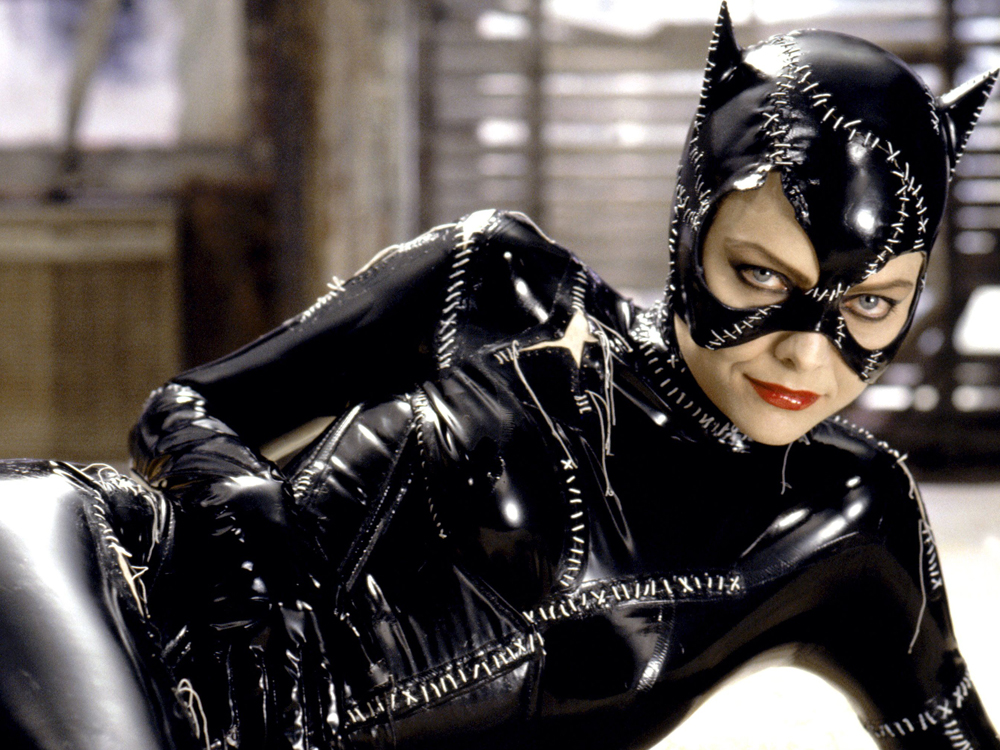
Catwoman (Batman Returns, 1992)
Nothing sorts out a breakdown and reinvents you as an all-round badass vigilante like a quick costume change and a black vinyl catsuit. Michelle Pfeiffer was a box-office hit in the early 90s and with good reason - Catwoman has always held her own alongside Batman. Here's a fun fact you might not know: Catwoman was inspired by Jean Harlow in the 1930s and was simply named "the cat". Her femme fatale credentials were an immediate hit with readers.
The leading destination for fashion, beauty, shopping and finger-on-the-pulse views on the latest issues. Marie Claire's travel content helps you delight in discovering new destinations around the globe, offering a unique – and sometimes unchartered – travel experience. From new hotel openings to the destinations tipped to take over our travel calendars, this iconic name has it covered.